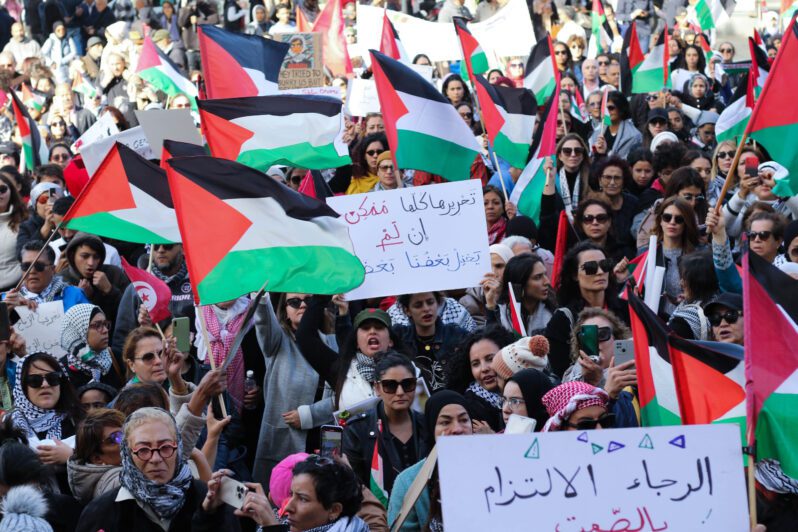Main Arab Legal Events: The Legal Agenda’s Perspective: Weekly Note noo 18 (1-7 January 2013)

Main Arab Legal Events: The Legal Agenda’s Perspective
Weekly Note noo 18 (1-7 January 2013)
Massive Rally for the Yemeni’s Higher Judicial Institute’s Graduates against a Decision to Appoint them to General Prosecution Positions
Egypt’s General Prosecution Members Form a Legal Committee to Defend Men of Law
Moroccan Ministry of Justice Decides to Compensate Judges for Overtime Services
First Military Trial to a Civilian after the Approval of the New Constitution in Egypt
1- Egypt:
-Tension flared up between the General Prosecutor Talaat Abdullah and the Prosecution members who decided to suspend work for 3 days (from January 8 till January 10, 2013) as a sign of protest against him remaining in office. Members have declared the establishment of a legal committee responsible for defending men of law. The committee will soon be submitting communications to the Supreme Judicial Council against several counselors, including Abdullah for interfering in the Presidential Palace’s investigations. On another note, Egypt’s head of the Judges’ Club addressed a letter to the Egyptian people warning against total work suspension in the Prosecutions in case the General Prosecutor does not resign. On the other hand, the “Judges for Egypt” Movement” addressed a memorandum to the Minister of Justice confirming the Prosecutor’s legitimacy and stating that any interference from the Minister (who represents the Executive Power) is an outrageous attack on the Judiciary. The Movement called for a deduction from the salaries of judges on strike. In parallel, the Independence Movement’s Judges issued a statement asserting the Prosecutor’s legitimacy. While condemning the Prosecution members’ actions, they called upon the Prosecutor to pave the way for the appointment of a General Prosecutor according to the new constitution.
-After the adoption of the new constitution last month, the first military trial to “a civilian” took place in Egypt. The journalist and blogger Mohammed Sabri is facing charges for having trespassed on a military zone and taken pictures of it. The Arab Network for Human Rights Information (ANHRI) has denounced the redundant wording of article 189 of the constitution which stipulates that a civilian may not appear before the military courts except for the crimes that prejudice the military forces. Such an article expands the practice of civilians’ appear before military courts amid a court’s decision to adjourn Sabri’s case until January 9, 2013. It should be noted that the Korsaya Island Case had also been already adjourned until January 14, 2013.
2- Tunisia:
-Judicial Entities: The Tunisian Judges’ Association and the Syndicate of Tunisian Magistrates are each separately calling for the establishment of a temporary committee to supervise the Judiciary. In a letter sent to the Constituent Council of Tunisia, the head of the Tunisian Judges’ Association urged the Council to form the committee as quickly as possible. Meanwhile, the head of the Tunisian Magistrates’ Syndicate accused the Council of betrayal to the Tunisian people for striving to create a non-independent committee, and declared the launching of an initiative for the “Judiciary Immunization”, knowing that the chapter relevant to the Judiciary in the draft constitution lacks any guarantees of the Judiciary’s independence. Since both entities agree on the same principles, there shall be no need for any initiative to unify their efforts in this regard.
3- Morocco:
-The first dialogue signs between the Minister of Justice and Freedoms and the Moroccan Judges’ Club started looming after the Ministry’s decision of extra-compensation for Judges’ overtime services. For the time being, Judges shall be granted one hour of break for each extra working hour, and one day of break for each extra working day, until a special decree on compensation is issued. It remains to be seen however who will calculate the extra hours and based on what standards. Otherwise, the overtime issue may raise concerns over a renewed tension and use of discretionary powers.
4- Yemen:
-Within the process of executing the judgment related to the Revolution’s victims, the Administrative Court gave the Central Bank 24 hours to transfer the due amounts to the Revolution’s injured people from the government’s account. In the meantime, the Finance Minister kept on refusing the medical reports submitted to the court, and demanded the appear of the injured before the medical committee formed by the Health Minister to assess the cost of their treatment, thus disregarding the binding nature of the judgment.
-A rally was organized by four promotions of the Higher Judicial Institute’s graduates before the Supreme Judicial Council, as a sign of protest against the Council’s decision to assign them to General Prosecution positions, a decision that goes against explicit Judiciary texts of law and the Yemeni’s legal system’s standards, knowing that the law provides for the assignment of the Institute’s graduates to judicial positions and not to General Prosecution ones.
Beyond the Weekly Note:
Bahrain:
-Repression wreaks more havoc as the Bahraini authorities arrested photographer Ahmad Homeidan who documented the daily regime’s violations. Ahmad’s parents were prevented from visiting him, and it was even forbidden for him to call a lawyer.
Saudi Arabia:
-The Arab Network for Human Rights Information denounced the arrest by the Saudi authorities of women and children who gathered to request the release of their relatives arrested several years ago without any trial and on unknown charges (Some of those women were released, while others remain under arrest).
Koweit:
-Four Koweiti activists refused to pay the bail after the General Prosecution decision to release them on 100 Dinar bail, making it clear that they refuse the random charges they face, and would rather instead remain under arrest. On another note, Koweiti bloggers sent a letter to the General Prosecutor expressing concerns over the Prosecution’s policy in terms of political issues and its excessive resort to remands in custody without any justified reasons, not to mention the highly expensive bails it imposes.
Prepared by Christelle El-Feghaly



